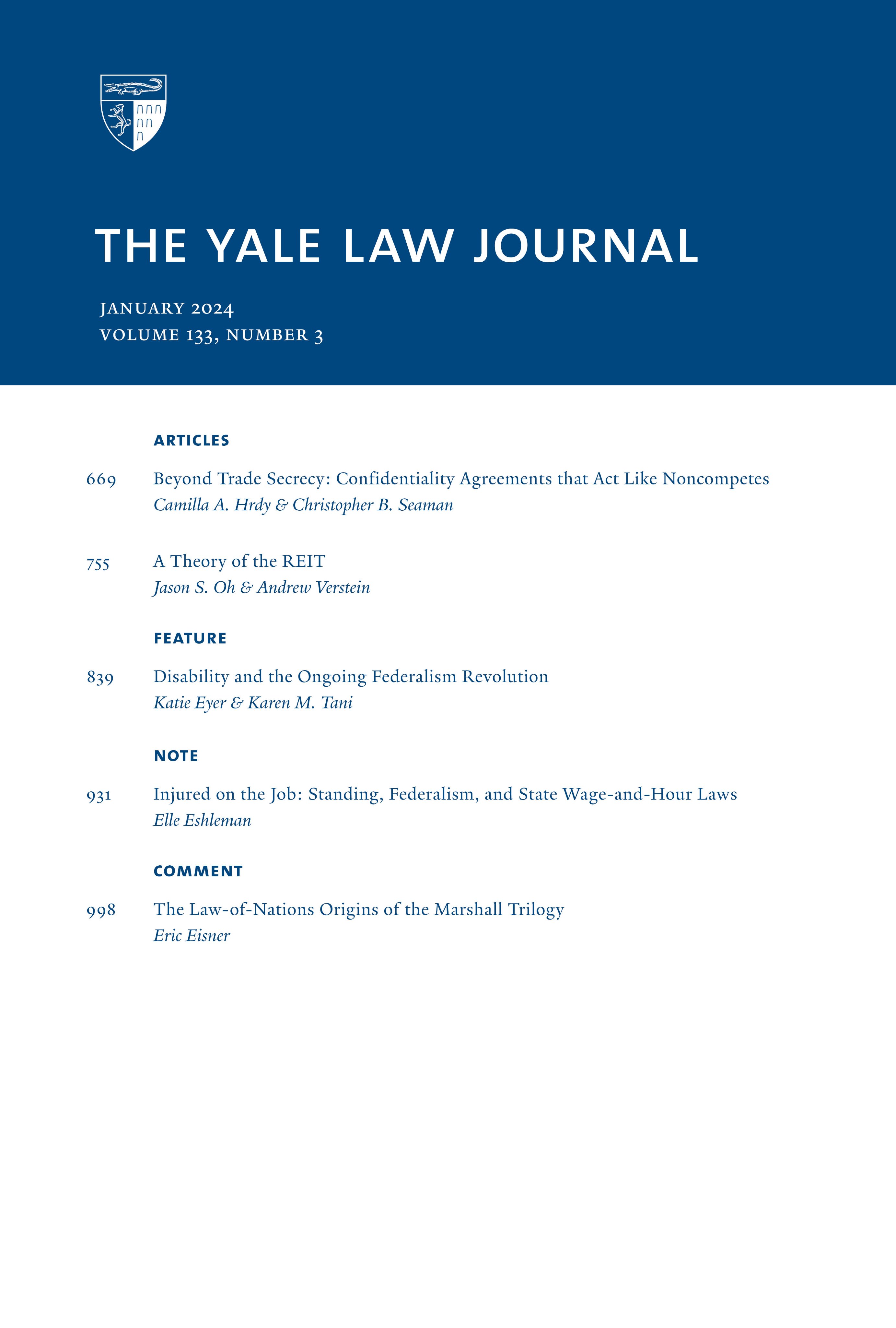判断普通意义
IF 5.2
1区 社会学
Q1 LAW
引用次数: 24
摘要
法官通常通过寻找法律语言的一般含义来开始他们的解释任务。而且它们常常就此结束——出于对法律通知功能的尊重或对立法者假定意图的尊重。大多数人都同意普通意义规则的首要地位。然而,学者们对法律语言的交流内容的不确定性深表遗憾。他们很快就会转向其他解释依据。我们同意该领域重要学者的诊断——从理查德•法伦和卡斯•桑斯坦到威尔•鲍德和史蒂夫•萨克斯——但拒绝他们提出的治疗方法。我们没有把普通意义的门槛问题放在一边,而是试图认真对待它。我们力求通过为语言语言学研究而设计的学术领域的理论和方法来做到这一点。我们发现在我们的法律试图相信法律的普通含义方面存在理论和操作上的缺陷,并提出语言学理论和工具来更可靠地评估它。我们的框架考察了具有普通意义的标志性问题——从著名的“公园禁止车辆”假设到最高法院的两起案件(美国诉Muscarello案和Taniguchi诉Kan Pacific Saipan案)和第七巡回法院理查德·波斯纳(Richard Posner)法官的意见(美国诉Costello案)。我们表明,法律的一般意义的概念隐含着关于语言使用的经验问题。我们介绍了语料库语言学领域的语言工具,可以帮助回答这些实证问题。当我们谈到普通意义时,我们是在问一个经验问题——关于一个词或短语的意义,这个词或短语最有可能在给定的语言语境中有牵连。语言学家开发了计算机辅助手段来回答这类问题。我们建议将这些方法引入解释法。我们考虑并回应律师和法官对其使用的批评。本文章由计算机程序翻译,如有差异,请以英文原文为准。
Judging Ordinary Meaning
Judges generally begin their interpretive task by looking for the ordinary meaning of the language of the law. And they often end there — out of respect for the notice function of the law or deference to the presumed intent of the lawmaker.
Most everyone agrees on the primacy of the ordinary meaning rule. Yet scholars roundly bemoan the indeterminacy of the communicative content of the language of the law. And they pivot quickly to other grounds for interpretation.
We agree with the diagnosis of important scholars in this field — from Richard Fallon and Cass Sunstein to Will Baude and Steve Sachs — but reject their proposed cures. Instead of setting aside the threshold question of ordinary meaning we seek to take it seriously. We seek to do so through theories and methods developed in the scholarly field designed for the study of language — linguistics.
We identify theoretical and operational deficiencies in our law’s attempts to credit the ordinary meaning of the law and present linguistic theories and tools to assess it more reliably. Our framework examines iconic problems of ordinary meaning — from the famous “no vehicles in the park” hypothetical to two Supreme Court cases (United States v. Muscarello and Taniguchi v. Kan Pacific Saipan) and a Seventh Circuit opinion of Judge Richard Posner (in United States v. Costello). We show that the law’s conception of ordinary meaning implicates empirical questions about language usage. And we present linguistic tools from a field known as corpus linguistics that can help to answer these empirical questions.
When we speak of ordinary meaning we are asking an empirical question — about the sense of a word or phrase that is most likely implicated in a given linguistic context. Linguists have developed computer-aided means of answering such questions. We propose to import those methods into the law of interpretation. And we consider and respond to criticisms of their use by lawyers and judges.
求助全文
通过发布文献求助,成功后即可免费获取论文全文。
去求助
来源期刊

Yale Law Journal
LAW-
CiteScore
4.50
自引率
6.20%
发文量
0
期刊介绍:
The Yale Law Journal Online is the online companion to The Yale Law Journal. It replaces The Pocket Part, which was the first such companion to be published by a leading law review. YLJ Online will continue The Pocket Part"s mission of augmenting the scholarship printed in The Yale Law Journal by providing original Essays, legal commentaries, responses to articles printed in the Journal, podcast and iTunes University recordings of various pieces, and other works by both established and emerging academics and practitioners.
 求助内容:
求助内容: 应助结果提醒方式:
应助结果提醒方式:


